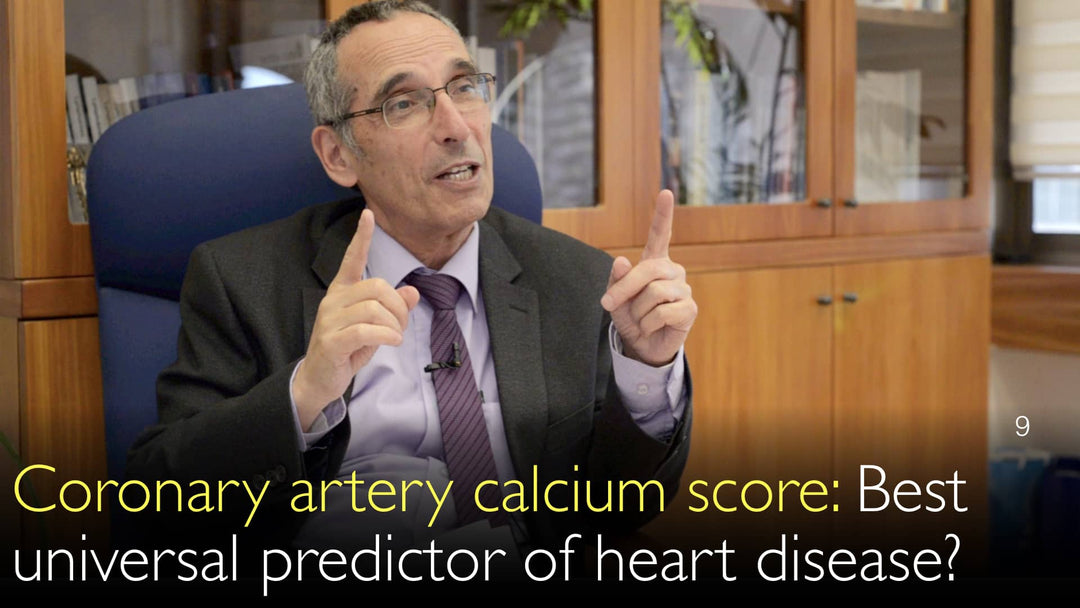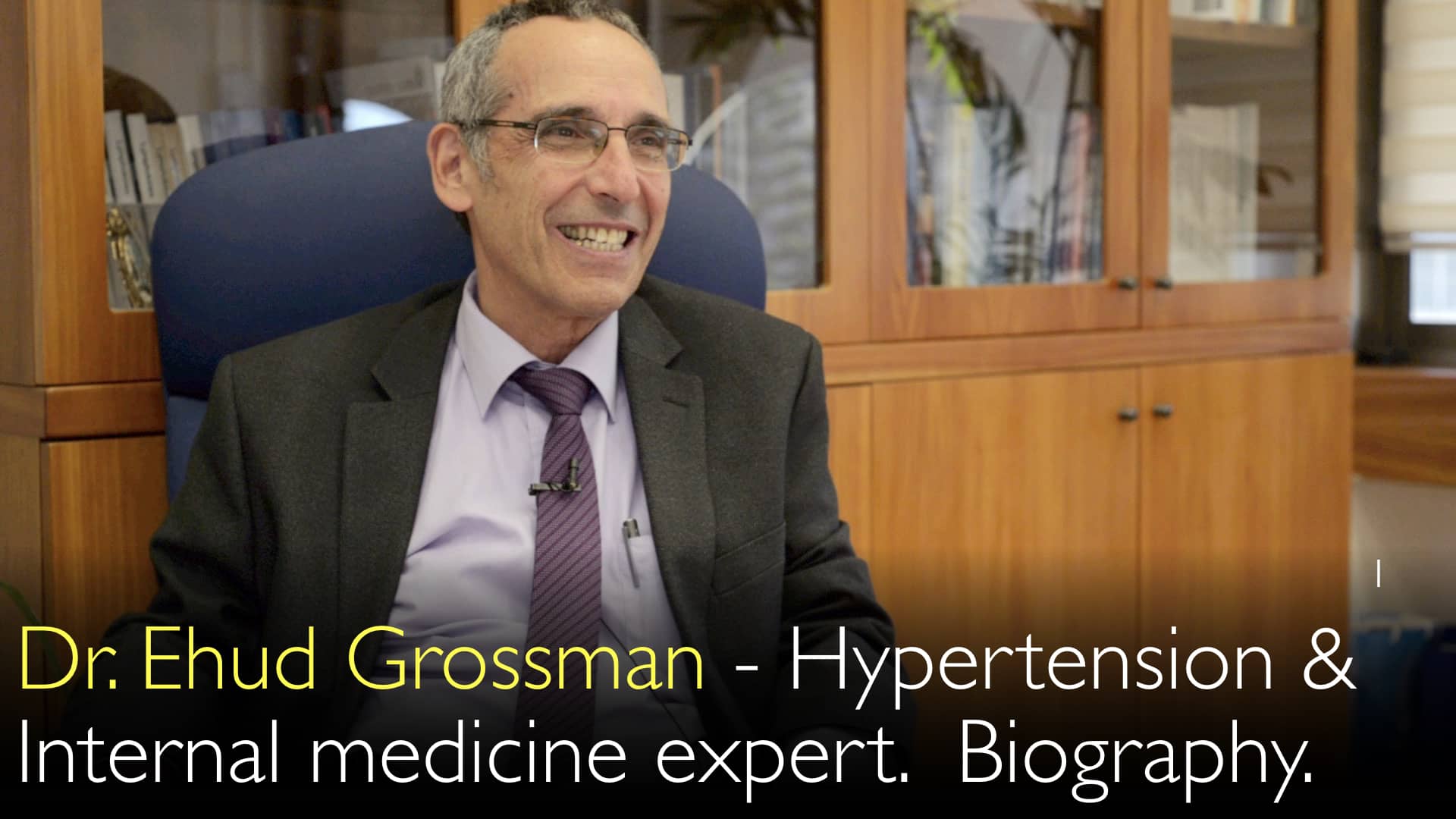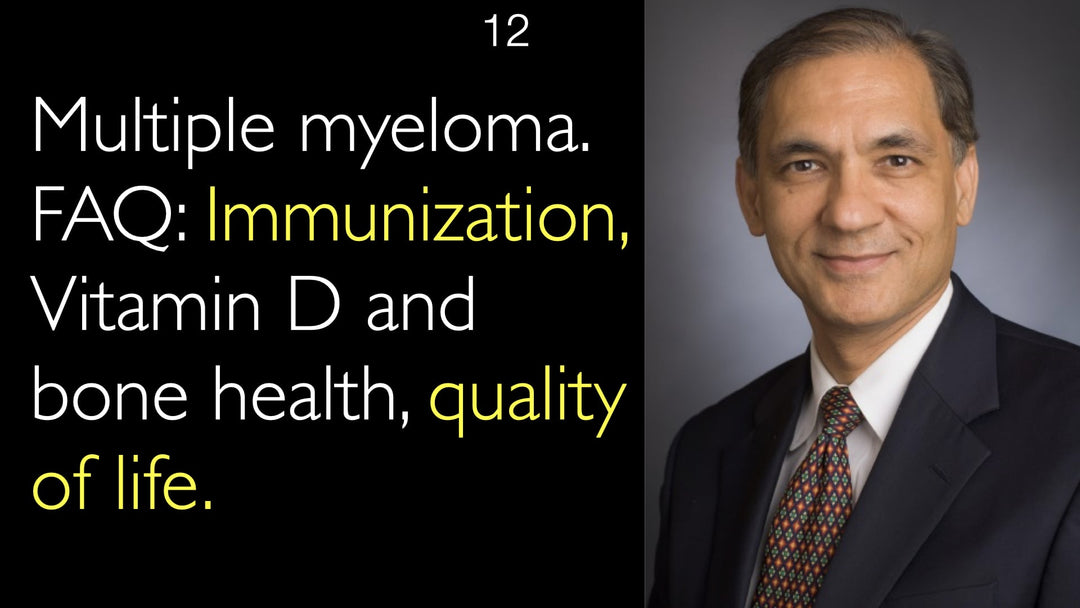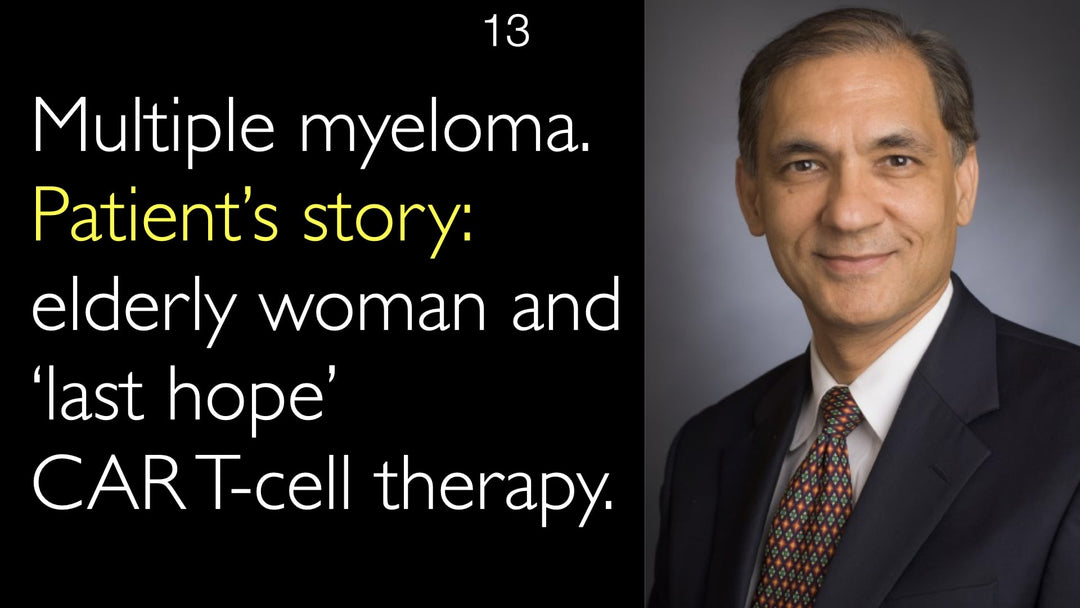Leading expert in hypertension and cardiovascular risk, Dr. Ehud Grossman, MD, explains how the coronary artery calcium score is a powerful predictor of heart disease. He details a simple, fast CT scan that measures calcium buildup in the coronary arteries. This score directly indicates the presence of atherosclerosis. Patients with a zero calcium score have an excellent long-term prognosis, even with other risk factors like diabetes. Dr. Ehud Grossman, MD, emphasizes that this tool provides a clear, summarized index for heart disease risk stratification. This helps guide aggressive treatment decisions for high-risk individuals.
Coronary Artery Calcium Score: The Definitive Test for Heart Disease Risk
Jump To Section
- Calcium Score and Heart Disease Risk
- The CT Scan Procedure
- Long-Term Prognosis Insights
- A Superior Risk Stratification Tool
- Implications for Treatment Decisions
- Genetic and Protective Factors
- Full Transcript
Calcium Score and Heart Disease Risk
Dr. Ehud Grossman, MD, clarifies the direct link between coronary artery calcification and cardiovascular risk. The presence of calcium in the coronary arteries is a definitive sign of atherosclerosis, which is heart disease. This finding is now recognized in major treatment guidelines, including those from the American Heart Association. The coronary calcium score provides a concrete measure of a patient's atherosclerotic burden.
The CT Scan Procedure
The test to obtain a coronary artery calcium score is a non-invasive CT scan. Dr. Ehud Grossman, MD, notes that the scan is very fast, taking only about 16 seconds to complete. The procedure involves a relatively low level of X-ray exposure for the patient. It provides a specific numerical score, known as the calcium index, which quantifies the amount of calcified plaque.
Long-Term Prognosis Insights
Research with 12 to 15 years of follow-up data reveals stark prognostic differences. Dr. Grossman's studies show that patients without any coronary calcium have very few cardiovascular events over the long term. This protective effect holds true even for patients with other risk factors, such as diabetes. Conversely, the presence of any coronary calcium significantly elevates the risk of future heart attacks and strokes.
A Superior Risk Stratification Tool
Dr. Ehud Grossman, MD, positions the coronary calcium score as a summarized index of atherosclerosis. Traditional risk factors like cholesterol, glucose, and blood pressure are indirect measurements. The calcium score offers a direct look at the disease process within the artery walls. A high score categorizes a patient as high-risk, while a zero score indicates low risk, simplifying complex risk assessment.
Implications for Treatment Decisions
The coronary calcium score directly informs critical treatment strategies for heart disease prevention. For a patient with a high score, Dr. Grossman advises being very aggressive with therapy. This includes intensifying efforts to lower blood pressure and cholesterol levels. It may also justify starting preventive medications like aspirin in these high-risk individuals.
Genetic and Protective Factors
Longitudinal studies provide fascinating insights into genetic protection. Dr. Ehud Grossman, MD, explains that patients without calcium at age 55 typically remain free of it years later. This stability suggests a powerful inherent, likely genetic, factor that protects certain individuals from developing atherosclerosis. This finding helps identify patients who are truly at low risk for heart disease throughout their lives.
Full Transcript
Dr. Anton Titov, MD: You study the impact of coronary artery calcification on cardiovascular risks, and in particular, heart disease risks in the setting of hypertension. Could you discuss the impact of coronary calcifications on heart disease risks?
Dr. Ehud Grossman, MD: We've been doing studies on coronary calcifications for 10 to 15 years. While people in the world accepted our results, they didn't come into the treatment guidelines. The recent heart treatment guidelines of the American Heart Association for the first time mentioned coronary calcium score as a very good criterion to decide whether to treat patients with statins or not.
The main finding that we saw is that you can see with a very fast CT scan that takes 16 seconds, with relatively low X-ray exposure, if the patient has coronary calcification. If there is calcium in the coronary artery, then the patient has atherosclerosis—so this is already heart disease.
What we found is that when we compare the long-term outcome—and "long-term" is not 5 years, but 12 to 15 years of follow-up—people with and without coronary calcium, we could see that those without calcium have very few cardiovascular events. Unlike those with coronary calcium who have higher risk with many events, such as heart attacks.
Even patients with diabetes, when they don't have coronary calcification, their prognosis is very good regarding heart disease.
We believe that the coronary calcium is a summarized index of atherosclerosis. Today you measure the cholesterol, you measure the glucose, you measure the blood pressure, and you try to say what is the risk of the patient. I can give you one risk index: if he has coronary calcium, he is a high-risk patient; if he doesn't have calcium, he is a low-risk patient for heart disease and stroke.
We did repeated coronary CT scans in several hundred patients. We saw that after three years, those who didn't have coronary calcium the first time didn't have calcium in coronary arteries the second time. If you don't have atherosclerosis when you are 55, you will not have coronary atherosclerosis when you're 60 or 65. This means that if you are protected, you are protected from heart disease.
Dr. Anton Titov, MD: So that probably implies a very strong genetic factor in atherosclerosis?
Dr. Ehud Grossman, MD: It's a genetic factor, but it also gives you a picture of what is the risk of the patient. If he is already atherosclerotic, if he has coronary calcium, then you know that you have to be very aggressive to lower the blood pressure, to lower the cholesterol. You may start aspirin because this is a high-risk patient for heart disease.
On the other hand, if someone looks like high-risk for heart disease but doesn't have coronary artery calcifications, he is in good shape.
Dr. Anton Titov, MD: This is very interesting, because if someone has a CT angiogram of coronary arteries done and has increased, relative for age, calcium in the coronary arteries but no atherosclerotic plaques, does that nevertheless put that person at risk for coronary heart disease?
Dr. Ehud Grossman, MD: Definitely! But you don't have to do coronary artery catheterization. It is a very fast CT scan; it takes several seconds, and you can tell exactly how much calcium is in coronary arteries. You can give a number—calcium index score—and then you can say what is the heart disease risk of this patient.








